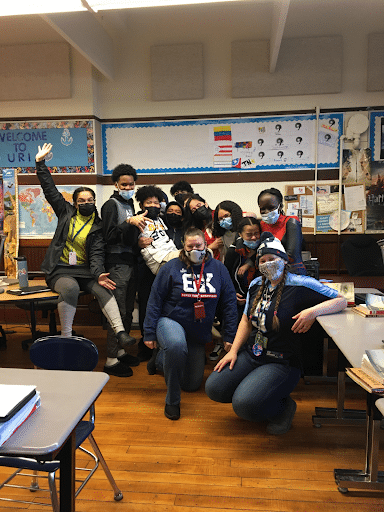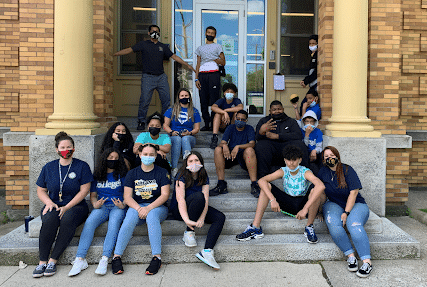By: Brianna Dodd
One of my favorite times of the school day is standing in the hallway as my students arrive for the day, and greeting them one by one. They have stories and jokes to tell, questions to ask, and weekend plans to discuss. An important way that education transcends the classroom is through social emotional learning that teachers are responsible for facilitating for students of all ages. Teaching children as whole people, where academics are not the only factor that defines success, is especially important at the middle school level. The need for focusing on the social, emotional, and cultural elements of school has become glaringly apparent in the midst of the pandemic, as my students are desperate to find time to connect with friends, while struggling to navigate interpersonal interactions with their peers, after experiencing a sense of isolation on Distance Learning. This question is something the entire education community is facing, alongside a nationwide teaching shortage. Collaboration with students and families on how to approach these wide-spread issues is vital in creating a positive school community, and I have been lucky enough to work with several student and parent representatives as part of the Tier 1 PBIS team (Positive Behavior Intervention and Supports) at BVP JHS. For the past four years, my role as PBIS chair has allowed me to facilitate collaboration among teachers, administrators, special education support staff, parents, and students in creating and maintaining a school-wide behavior system that has clear expectations for student behavior, positive incentives, and support for students of all abilities.
The PBIS team has had student members in grades 5-8, as well as different parent representatives over time. A diverse group of perspectives when analyzing school-wide behavioral data allows the group to make more informed decisions and action plans. In particular, families have taught us to differentiate and provide choice in all student-facing activities, whether it be a prize for a school-wide competition, questions on a culture survey, or a school-wide family event. Parents have also reminded us to be empathetic in our practices and consider all of the obligations in our students’ lives. 
Student voice is incredibly valuable because they are the only ones who can explain their classroom experiences throughout the day. Students have helped us create staff professional development activities, school-wide incentives for expectations like taking care of our school and custodial staff, and reinforcement systems for teacher-parent communication. This collaboration has helped our school teach skills like interpersonal communication and taking care of personal technology, build personal connections within the school community, and explore and share about our multifaceted identities. This year we have had rich discussions about current issues in our school community like how to show kindness, how to be an ally, and how to take care of mental health. Students have generated topics they deem important to discuss such as social media use, code switching, and celebrating the LGBTQ community. The importance of student and parent voice in school-based decisions cannot be overstated.
It takes a brave child to share their honest opinions about their school experience with a room of adults. It takes a dedicated parent to take time out of their busy schedule and share ideas at a school meeting once a month. Building school community can happen in many ways. We must all think creatively about how to reach out to our students and families under today’s circumstances.
Brianna Dodd is the PBIS Chair, MLL Lead, and English Language Arts teacher at Blackstone Valley Prep Junior High School. Brianna is also the network’s 2020-2021 Teacher of the Year.



